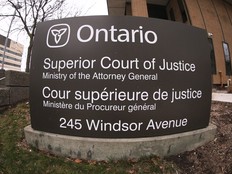Doors to Baseball Hall of Fame now open for the late Pete Rose

Article content
Everything you need to know about Pete Rose and Major League Baseball’s decision to take him off the “permanent ineligibility” list after his death last year.
Who was Pete Rose?
Peter Edward Rose was an old-school, hard-nosed baseball player who earned the nickname “Charlie Hustle” for his face-first slides, for running to first base after being walked and for his gung-ho demeanour on the diamond. Over a 24-year playing career in Major League Baseball — 1963 through 1986 — he suited up for the Cincinnati Reds, Philadelphia Phillies and Montreal Expos. He was a 17-time all-star, three-time batting champ, 1963 National League rookie of the year, 1973 NL MVP, a member of three World Series-winning teams and the 1975 Series MVP. He is the MLB career leader in games played (3,562), at-bats (14,053) and hits (4,256). He became player-manager of the Reds in 1984, retired as a player in the fall of 1986, but continued to manage the team until 1989. He died Sept. 30, 2024 at age 83 at his home in Las Vegas.
Why was Rose banned from baseball?
Rose was an addicted gambler who bet on baseball games in which he either played or managed, a direct contravention of MLB’s Rule 21 pertaining to misconduct.
Rumours about his betting activities began to swirl near the end of his playing career, prompting MLB to launch an investigation. Acting as special counsel to the commissioner, John Dowd delivered a damning, exhaustive 225-page report to MLB in May 1989. It was published on June 27, 1989, along with bank and telephone records, alleged betting slips and transcripts of interviews with Rose and other witnesses.
Six days later, Sports Illustrated magazine published a comprehensive cover story that quoted Ron Peters, alleged to be Rose’s bookie, saying Rose bet on baseball games, including those in which he acted as manager.
Rose nonetheless continued to deny that he bet on baseball. However, he dropped his legal action against commissioner A. Bartlett Giamatti and agreed to lifetime banishment in a deal that was announced on Aug. 23, 1989 and stated, in part:
“Peter Edward Rose acknowledges that the commissioner has a factual basis to impose the penalty provided herein. … Nothing in this agreement shall be deemed either an admission or a denial by Peter Edward Rose of the allegation that he bet on any Major League Baseball game.”
Giamatti said that day it was only his personal feeling that Rose bet on baseball, but nothing in the official terms of the settlement pointed to Rose’s guilt or innocence.
“The banishment for life of Pete Rose from baseball is the sad end of a sorry episode,” the statement from Giamatti read. “One of the game’s greatest players has engaged in a variety of acts which have stained the game, and he must now live with the consequences of those acts. By choosing not to come to a hearing before me, and by choosing not to proffer any testimony or evidence contrary to the evidence and information contained in the report of the special counsel to the commissioner, Mr. Rose has accepted baseball’s ultimate sanction, lifetime ineligibility.
“This sorry episode began last February when baseball received firm allegations that Mr. Rose bet on baseball games and on the Reds’ games. Such grave charges could not and must never be ignored.”
At the time of the announcement, Rose was still eligible for entry into the Baseball Hall of Fame. However, in 1991, MLB adopted a rule stating that anyone under the terms of permanent ineligibility cannot be enshrined in the Hall of Fame, a rule clearly aimed at Rose. He nonetheless applied for reinstatement in 1997 to no avail, and met with then-commissioner Bud Selig in 2002, again to no avail.
In his 2004 autobiography, Rose finally admitted to betting on baseball games, including those involving his own team. He claimed he never bet on his team to lose. In 2015, commissioner Rob Manfred denied Rose’s appeal.
Why has Rose been removed from the “permanent ineligibility” list?
MLB announced on Tuesday that Rose, 14 other former players, a former coach and former owner, all deceased, were being removed from the ranks of the permanently ineligible. There is reason to believe Manfred caved to mounting public and private pressure from U.S. President Donald Trump, who published a series of posts on his Truth Social platform, imploring MLB to lift the ban on Rose.
“Baseball, which is dying all over the place, should get off its fat, lazy ass and elect Pete Rose, even though far too late, into the Baseball Hall of Fame,” Trump posted in April, after a meeting with Manfred.
Tuesday’s announcement from MLB included this message from Manfred: “In my view, once an individual has passed away, the purposes of Rule 21 have been served.”
Is Rose likely to be enshrined in the Hall of Fame, and if so, when?
On the merits of performance, longevity and both individual and team success, Rose is an absolute lock for posthumous entry to Cooperstown.
However, a 35-year banishment from the game has placed obstacles in the path to the hallowed hall. Because he was never on the Baseball Writers of America ballot, Rose can only get to the Hall by a vote of Classic Era Committee members, who do not meet until December 2027. Their mandate is to consider the pre-1980 accomplishments of players and Rose would certainly have the bonafides for entry.
However, a screening committee would first have to nominate Rose as one of eight players eligible for admission. If that happens, at least 12 of 16 voters on the committee, which is comprised of long-tenured baseball executives, Hall of Fame players, media members and historians, would have to place an ‘X’ by his name.













Postmedia is committed to maintaining a lively but civil forum for discussion. Please keep comments relevant and respectful. Comments may take up to an hour to appear on the site. You will receive an email if there is a reply to your comment, an update to a thread you follow or if a user you follow comments. Visit our Community Guidelines for more information.